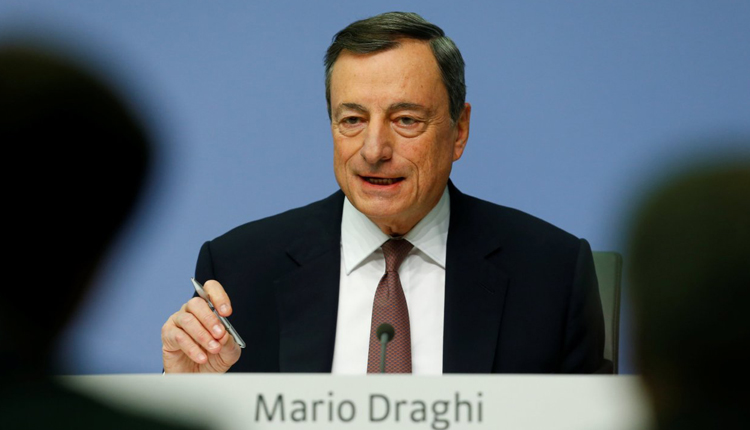His legacy will stand for around three words — “whatever it takes” — but as President Mario Draghi prepares to leave the helm of the European Central Bank (ECB), questions are emerging about the success of the policy tools he helped to execute.
“Ironically, the end of Draghi’s presidency coincides with a time of growing skepticism about the effectiveness of monetary policy and growing calls for a more active role for fiscal policy,” Silvia Dall’Angelo, senior economist at Hermes Investments, told CNBC via email.
Draghi is completing his eight-year term at the ECB at the end of the month. However, his decisions of late have aroused a rare division within the central bank.
The ECB has struggled to achieve its main task — ensuring an inflation level of “close but below 2 percent over the medium-term” in the wake of the sovereign debt crisis of 2011. At the same time, the increased economic challenges, such as the trade war, Brexit and weaker manufacturing data, have heaped further pressure on the central bank to act. This culminated in a fresh round of stimulus measures in September, which included a new round of government bond purchases.
This brought “serious divisions within the ECB,” Florian Hense, euro zone economist at Berenberg bank, said in a note regarding the stimulus package.
“For ECB policy to be effective, Christine Lagarde will have to calm the debate and bridge the gaps when she starts her new job as ECB president in November,” Hense said about Draghi’s successor.
Members of the central bank have expressed worries about the effectiveness of the policy measures as well as their scale. This has also been a concern among some economists, who question the benefits of ultra-loose monetary policy.
What future for the euro zone?
The sovereign debt crisis of 2011 had a long-lasting impact on the euro zone, partly due to the fractured political opinions across the euro area countries. While they all share the same currency and monetary policy applies equally, fiscal policy is a matter decided at the national level.
As a result, when the crisis hit, the euro zone had neither the institutional efficiency nor the central governance to deal with it.
“Draghi urged for the completion of the European institutional framework, which is ultimately needed to allow for the sustainability of the single currency and the European project at large. However, progress has been limited,” Dall’Angelo said.
She noted that the banking union, which aims to make banking standards and supervision equal across the euro area, and the capital markets union, which looks to offer wider sources of funding, have not been completed.
“As Draghi leaves, the European project is losing one of its main champions, making the task to complete the union ever more challenging,” Dall’Angelo from Hermes Investment said.
Draghi’s ultimate legacy
Irrespective of the future, analysts have no doubt that Draghi will always be linked to his “whatever it takes” speech.
In 2012, bond markets were panicking about the prospect of a series of sovereign defaults and an eventual breakup of the euro zone. As a result, traders were worried about buying European debt.
Draghi, who hadn’t been in office for a full year yet, told an audience in London: “Within our mandate, the ECB is ready to do whatever it takes to preserve the euro. And believe me, it will be enough.”
“Draghi’s commitment to do ‘whatever it takes’ has come to seem like an obvious turning point — but he had no policy tools to back it up,” Constantine Fraser, analyst at TS Lombard, told CNBC via email.
He added: “If he hadn’t been as talented a politician as he is a central banker, the EU would probably be in a very different place today.”
Draghi’s words rang loudly around the world’s trading rooms, investors believed his commitment and yields fell sharply across the euro zone.
“It’s hard to overstate just how important Draghi’s tenure has been, even if you’re generally skeptical about individuals’ ability to shape historical events. Not only did he play the single most important role in — essentially — saving the euro zone, but since autumn 2011 he has de-facto rewritten the ECB’s mandate,” Fraser said.
Source: CNBC
